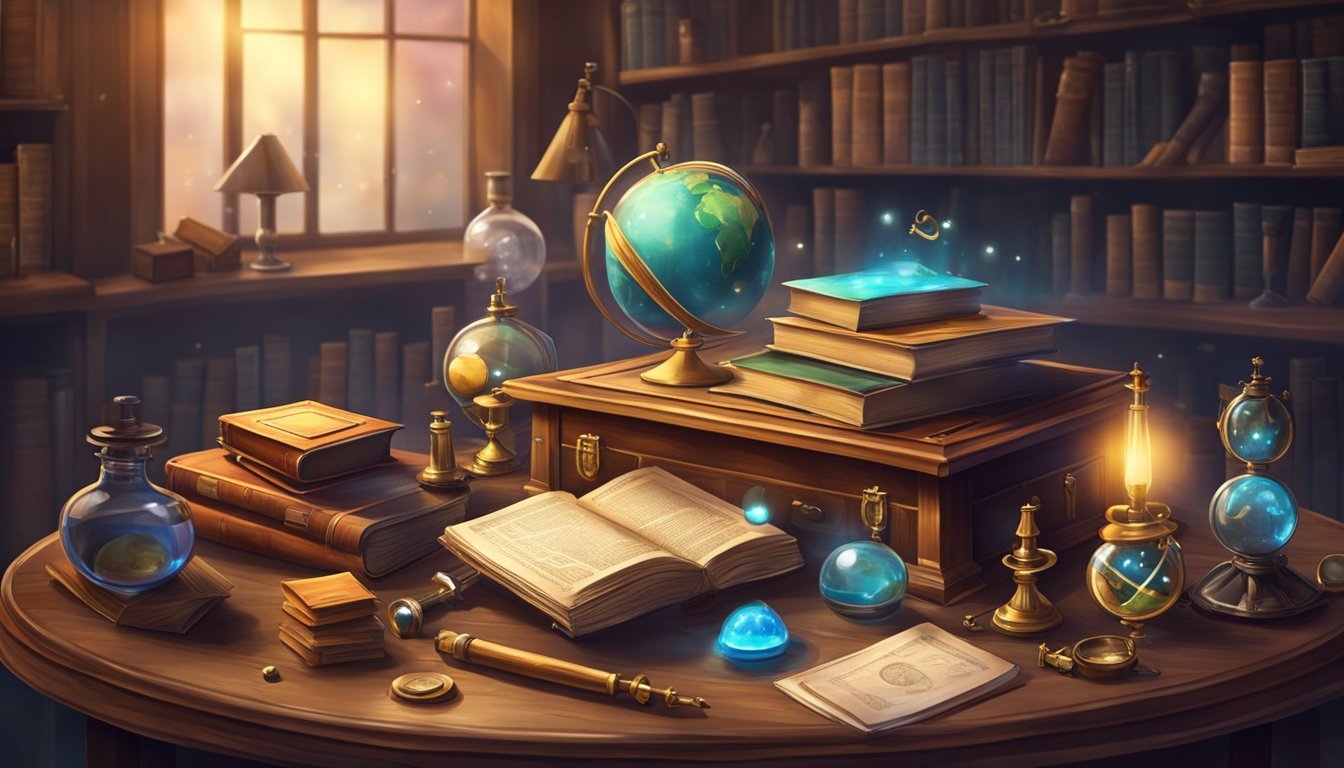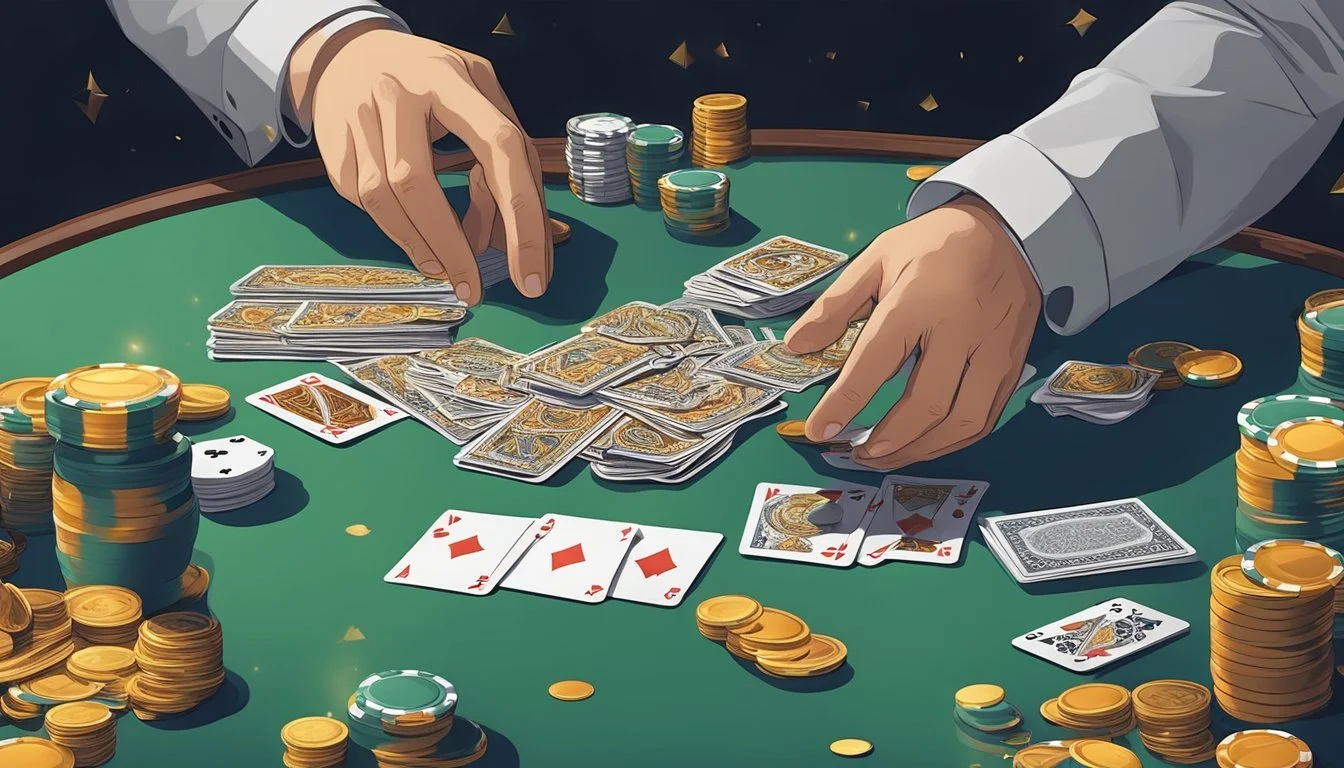7 Documentaries That Reveal the Science Behind Magic Tricks
Unmasking Illusions Through Film
Magic has captivated audiences for centuries, blending mystery and wonder into mesmerizing performances. While magicians guard their secrets closely, science offers fascinating insights into how many classic illusions actually work. Documentaries exploring the intersection of magic and science reveal the psychological and perceptual principles behind seemingly impossible feats.
These films pull back the curtain on magic to show how skilled performers exploit quirks of human cognition and visual processing to create jaw-dropping effects. From misdirection techniques to optical illusions, the mechanisms underlying magic tricks often rely on exploiting limitations in how our brains process information. By understanding these scientific principles, viewers gain a deeper appreciation for the artistry and skill involved in crafting convincing illusions.
1) Apollo Robbins: The Gentleman Thief
Apollo Robbins, known as "The Gentleman Thief," is a renowned pickpocket and sleight-of-hand artist. His exceptional skills have caught the attention of both the entertainment world and the scientific community.
Robbins gained fame for his ability to manipulate attention and perception. He once pickpocketed former President Jimmy Carter's Secret Service detail, taking their watches, wallets, and badges.
Scientists have studied Robbins' techniques to understand how the human brain processes information. His curvilinear hand motions, for example, affect audiences differently than straight hand motions.
Robbins has collaborated with neuroscientists to explore the cognitive processes behind magic tricks. These studies provide insights into attention, memory, and decision-making.
The documentary "The Gentleman Thief" showcases Robbins' skills and the scientific research inspired by his work. It demonstrates how magic can reveal fascinating aspects of human psychology and neuroscience.
Learn more about Apollo Robbins on his official website
2) Derren Brown: The Experiments
Derren Brown's "The Experiments" is a series of four one-hour television specials that aired in 2011. Each episode explores a different aspect of human behavior and psychology through elaborate setups and demonstrations.
The show features Brown's signature blend of magic, suggestion, and psychological manipulation. He uses these techniques to create scenarios that test the limits of social compliance and personal agency.
One notable episode, "The Assassin," investigates whether it's possible to hypnotize someone to commit a crime. Brown attempts to program an unwitting participant to assassinate a celebrity, raising thought-provoking questions about free will and responsibility.
Another experiment, "The Guilt Trip," examines how easily people can be manipulated into believing they've committed a crime they didn't actually do. This episode highlights the fallibility of memory and the power of suggestion.
Brown's approach in "The Experiments" combines entertainment with elements of social psychology research. While not strictly scientific, the series offers intriguing insights into human behavior and the potential for manipulation.
https://en.wikipedia.org/wiki/Derren_Brown#The_Experiments
3) Penn & Teller: Fool Us - Behind the Tricks
Penn & Teller: Fool Us offers a unique glimpse into the world of magic and illusion. The show features aspiring magicians performing tricks for the renowned duo Penn & Teller.
Contestants attempt to deceive the veteran magicians with their illusions. If Penn and Teller cannot figure out how a trick is done, the performer wins a trophy and a chance to appear in the duo's Las Vegas show.
The series provides insight into the thought processes of professional magicians. Penn and Teller analyze each performance, discussing potential methods and techniques used to create the illusion.
While the show doesn't explicitly reveal secret methods, it educates viewers about the principles behind magic tricks. Concepts like misdirection, sleight of hand, and psychological manipulation are frequently discussed.
Penn & Teller: Fool Us demonstrates that even expert magicians can be deceived by innovative techniques. It highlights the creativity and skill required to develop new illusions in a field with centuries of history.
https://en.wikipedia.org/wiki/Penn_%26_Teller:_Fool_Us
4) Dynamo: Magician Impossible
Dynamo: Magician Impossible is a documentary series that follows the exploits of British magician Steven Frayne, better known as Dynamo. The show aired from 2011 to 2014, showcasing Dynamo's street magic and large-scale illusions.
Each episode features Dynamo performing incredible feats for celebrities and ordinary people alike. His tricks range from levitating above the Shard in London to walking on water across the River Thames.
The series provides glimpses into how some illusions are set up, though it never fully reveals Dynamo's secrets. It demonstrates the meticulous planning and practice required to pull off seemingly impossible feats of magic.
Dynamo: Magician Impossible blends elements of reality TV with magic performance. It shows Dynamo interacting with spectators and navigating the challenges of executing complex illusions in public spaces.
The show helped propel Dynamo to international fame and won several awards, including a Broadcasting Press Guild Award for Best Multichannel Programme.
[https://en.wikipedia.org/wiki/Dynamo:_Magician_Impossible]
5) David Blaine: Real or Magic
David Blaine's television special "Real or Magic" showcases his unique brand of street magic and illusions. The documentary-style program follows Blaine as he performs for celebrities and ordinary people across America.
Blaine's tricks in this special range from card manipulation to seemingly impossible physical feats. He amazes viewers with his ability to push needles through his arm and regurgitate live frogs.
The show offers glimpses into the reactions of famous figures like Woody Allen, Will Arnett, and other stars as they witness Blaine's perplexing performances up close. These genuine responses add an layer of authenticity to the program.
"Real or Magic" blends elements of traditional magic with Blaine's signature endurance stunts. It provides an intriguing look at how magic can captivate audiences from all walks of life.
The special demonstrates Blaine's skill at creating memorable, mind-bending moments that leave spectators questioning the line between illusion and reality.
IMDb page for David Blaine: Real or Magic
6) Ricky Jay: Deceptive Practice
Ricky Jay, a renowned magician and sleight-of-hand artist, takes center stage in this captivating documentary. The film explores Jay's journey through the world of magic, showcasing his exceptional skills and dedication to the craft.
Viewers are treated to mesmerizing performances by Jay, demonstrating his mastery of card manipulation and other illusions. The documentary also delves into the rich history of magic, offering insights into the mentors who shaped Jay's career.
Jay's encyclopedic knowledge of magic's past shines through as he discusses legendary performers and their techniques. The film provides a rare glimpse into the secretive community of professional magicians, revealing the dedication required to perfect their art.
Through interviews and archival footage, the documentary paints a portrait of Jay as both a skilled performer and a passionate historian of magic. His ability to blend entertainment with education makes this film a must-watch for magic enthusiasts and newcomers alike.
IMDb: Deceptive Practice: The Mysteries and Mentors of Ricky Jay
7) The Science of Magic (National Geographic)
This National Geographic documentary explores the intersection of magic and science. It features renowned magicians and scientists collaborating to uncover the psychological principles behind illusions.
The film delves into topics like misdirection, cognitive biases, and perception manipulation. It demonstrates how magicians exploit quirks in human cognition to create seemingly impossible feats.
Viewers gain insights into the neuroscience of attention and memory. The documentary showcases experiments that reveal how magicians' techniques can influence decision-making and alter memories.
Cutting-edge brain imaging technology is used to examine how magic tricks affect neural activity. This provides a unique window into the cognitive processes involved in experiencing illusions.
The Science of Magic highlights how studying magic can advance our understanding of human psychology and cognition. It illustrates the valuable contributions magicians can make to scientific research.
https://www.nationalgeographic.com/tv/shows/brain-games/episode-guide/season-01/episode-05-magic
The Psychology of Magic
Magic tricks exploit the quirks and limitations of human cognition. By understanding how our minds process information and perceive the world, magicians can create seemingly impossible illusions.
Cognitive Illusions
Magicians take advantage of cognitive biases and mental shortcuts to fool our brains. Change blindness allows them to make subtle alterations without detection. The illusion of continuity lets them create seamless transitions between states. Inattentional blindness causes spectators to miss obvious events when focused elsewhere.
Magicians also exploit pattern recognition tendencies. Our brains naturally seek to complete partial information and find meaningful patterns. This allows magicians to imply connections or outcomes that aren't actually there.
Memory limitations play a key role too. False memories can be implanted through clever framing and suggestion. Details of tricks are often misremembered or conflated, enhancing their mystique.
Misdirection Techniques
Misdirection is a fundamental principle in magic. It involves manipulating attention to conceal secret actions. Magicians use both overt and covert misdirection strategies.
Overt misdirection uses visible actions, movements, or verbal cues to direct focus. A flourish with one hand draws eyes away from the other. Questions or jokes momentarily divert mental attention.
Covert misdirection is subtler. It exploits instinctive reactions and subconscious processes. Social cues like eye contact naturally pull focus. Abrupt sounds trigger involuntary attention shifts.
Magicians also create false assumptions about their intentions or abilities. This primes spectators to overlook certain actions or possibilities, making tricks more baffling.
The Science of Illusions
Magic tricks often rely on scientific principles to create seemingly impossible effects. Magicians exploit how our brains process visual information and interpret reality to craft convincing illusions.
Optical Illusions
Optical illusions form a cornerstone of many magic tricks. These effects take advantage of how our visual system processes light, color, and perspective. The classic "sawing a woman in half" illusion uses specially designed boxes to fool the eye.
Magicians employ forced perspective, creating false depth perceptions. They use contrasting patterns and colors to create motion illusions. Some tricks rely on afterimages, where a bright flash leaves a lingering visual impression.
Mirrors and reflective surfaces are also common tools. They can make objects appear, disappear, or seem to float. Clever lighting techniques further enhance these optical deceptions.
Perception and Reality
Our brains constantly make assumptions about the world around us. Magicians exploit these mental shortcuts to manipulate our perception of events. They direct attention away from secret moves using misdirection techniques.
Change blindness, where we fail to notice alterations in our visual field, allows for seamless switches. Magicians use rapid movements or distractions to perform actions without detection. They also take advantage of inattentional blindness, our inability to see unexpected objects.
Cognitive illusions play a role too. False memories can be implanted through suggestion. Magicians use psychological forces to guide choices, creating the illusion of free will. Understanding these perceptual quirks allows magicians to craft convincing routines that challenge our sense of reality.


